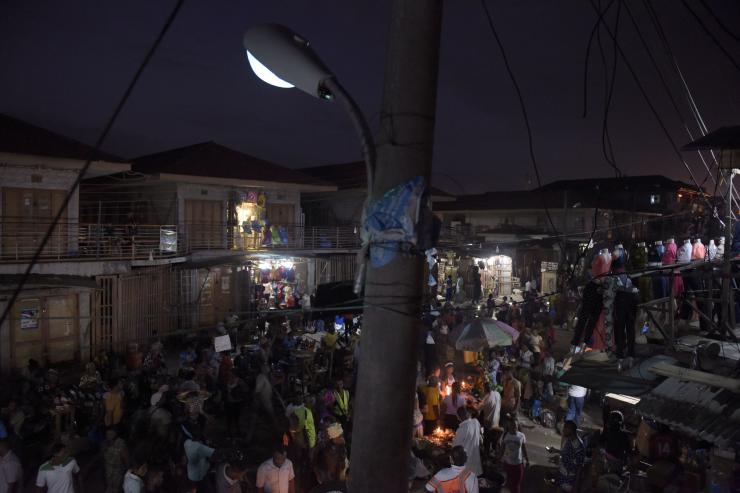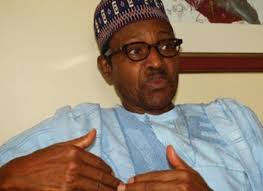The Federal Government has so far spent a total of N2.7tn on the power sector from 1999 to date, the Permanent Secretary of the Ministry of Power, Mr. Goodknows Igali, has disclosed.
This figure which translates to about $20 billion has not resulted in steady power supply, as the country’s peak power generation remain well below 5000 MW. South African a country just about half of Nigeria generates above 40000Mw.
Igali in his presentation at an investigative hearing on identified unwholesome practices in the power sector at the National Assembly explained that of this sum, N1.6tn was appropriated for the Ministry and its agencies, out of which, N948bn was released during the period under review.
Senate began a probe into the power sector on Tuesday.It is trying to find out why the power situation in the country remained abysmal despite the huge expenditures recorded on that account.
According to Igali, the N2.7tn also covers funds released for the National Independent Power Projects.
He said, “The actual release to the power sector was N948bn. When I say money appropriated to the sector, it covers all the value chain (the defunct) NEPA and all its agencies out was about N1.6tn appropriated.”
The Permanent Secretary explained that out of a total N1.565 trillion appropriated for the sector during the period under review, N948 billion was released in addition to N155 billion also injected into the sector in form of subsidy under the multi year tariff order (MYTO) to cushion the shortfall of funding which, when added to $8.34 billion spent on NIPP projects, gives a total of N2.7 trillion
He, however, said the power sector before 1999, was even more poorly managed as there was no single engineer employed 19 years before the time, and out of the 79 generation units available before then, only 19 were functioning with power generation of 1, 750 megawatts.
“Power sector investment before the advent of democratic governance in 1999, was static which shouldn’t be so at all. No new power plants between 1991 and 1999, no new transmission line between 1989 and 1999 etc; a very bad trend that gave successive governments from 1999 till date sleepless nights to reverse which they eventually did up to the privatisation of the sector in November 2013,” he said.
According to Igali, investments in the power sector with the return of democratic rule in Nigeria in 1999, electricity generation rose from 3,500 and peaked at 4,600 megawatts.
The permanent secretary also informed the committee that current improvements in power generation and distribution were due to the reduction of cases of gas pipeline vandalisation as well as other acts of sabotage of power equipment.
Igali observed that since power was introduced in Lagos in the 1800s, the sector had remained in government hands until 1999.
The privatisation, he observed, had helped to improve access to power in remote parts of the nation.
He also told the hearing that the unbundling of the power sector which paved the way for private sector participation through the National Independent Power Projects had proved to be a catalyst for the improvements.
According to him, the NIPP is today the greatest contributor of power to the national grid.
On the seemingly intractable labour dispute between disengaged workers of the defunct National Electric Power Authority, Igali said only 2,000 former workers out of about 46,000 have outstanding payment claims.
He maintained that the remaining 2,000 had not been paid because most of them had no valid documents to prove that they were members of staff.
Igali further explained that proceeds of the privatisation were used by the Bureau for Public Enterprises, through the office of the Accountant General of the Federation and Pension Commission to settle labour claims.
The permanent secretary also noted that the greatest challenge facing the sector today was not power generation but distribution.
This, he explained, was because most of the distribution facilities were obsolete and would require huge sums to be changed by Distribution Companies commonly referred to as DISCOS.
Added to this, he said was the problem of the theft of power equipment in various parts of the country.
Igali said, “We even have a situation that in the past three weeks, distribution companies have to use modern technologies and computer based technologies to be able to shut down people who are stealing energy to bring them into the mainstream.
“These are some of the situations distribution companies have to deal with. Some of the distribution companies did not even take energy.”
Igali explained that the slight improvement being experienced in power supply now across the country was due to the privatisation of generation and distribution components of the sector in November 2013, one of which is the Ughelli Power Plant, generating 640 MW now from 160 MW.
Aside Igali, chief executives of the various power companies also made similar submissions with regards to monies injected into their various units for power generation and distribution during the period under review.
Committee Chairman, Senator Abubakar Kyari and other members, punctured various submissions over lack of audited reports attached to them.
Kyari disclosed the committee was not only out to know the total monies expended on the sector during the period under review but also to know how the monies were spent in terms of probity, accountability, transparency and due process.














